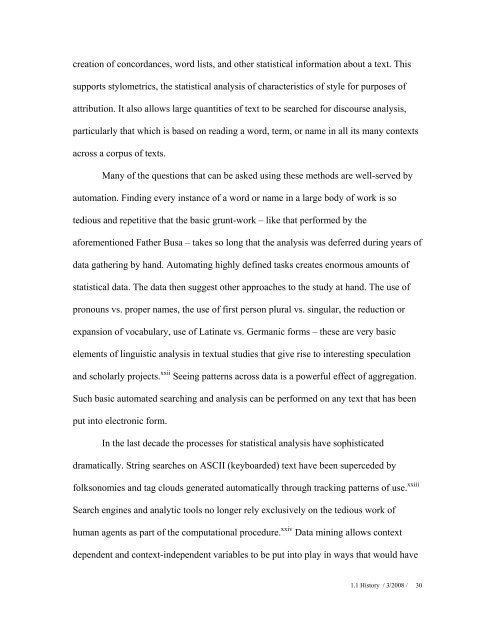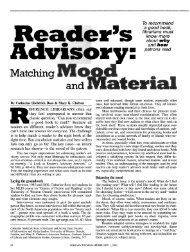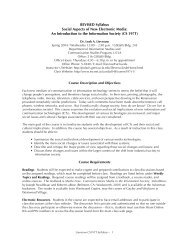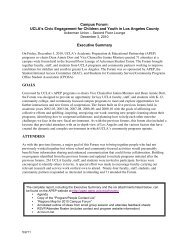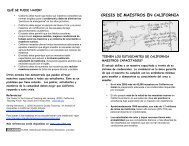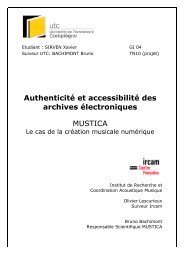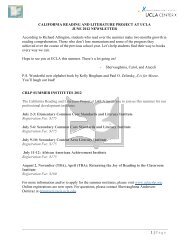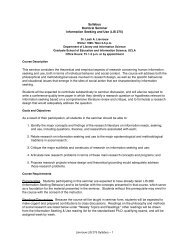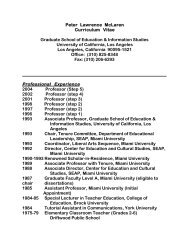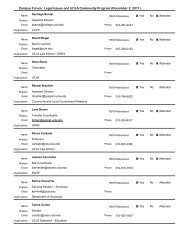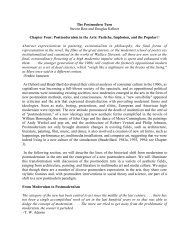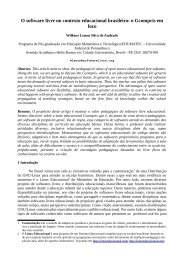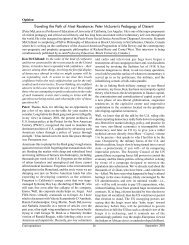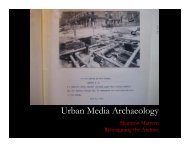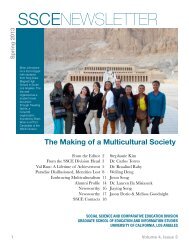1.1 From Digital Humanities to Speculative Computing - UCLA ...
1.1 From Digital Humanities to Speculative Computing - UCLA ...
1.1 From Digital Humanities to Speculative Computing - UCLA ...
You also want an ePaper? Increase the reach of your titles
YUMPU automatically turns print PDFs into web optimized ePapers that Google loves.
creation of concordances, word lists, and other statistical information about a text. This<br />
supports stylometrics, the statistical analysis of characteristics of style for purposes of<br />
attribution. It also allows large quantities of text <strong>to</strong> be searched for discourse analysis,<br />
particularly that which is based on reading a word, term, or name in all its many contexts<br />
across a corpus of texts.<br />
Many of the questions that can be asked using these methods are well-served by<br />
au<strong>to</strong>mation. Finding every instance of a word or name in a large body of work is so<br />
tedious and repetitive that the basic grunt-work – like that performed by the<br />
aforementioned Father Busa – takes so long that the analysis was deferred during years of<br />
data gathering by hand. Au<strong>to</strong>mating highly defined tasks creates enormous amounts of<br />
statistical data. The data then suggest other approaches <strong>to</strong> the study at hand. The use of<br />
pronouns vs. proper names, the use of first person plural vs. singular, the reduction or<br />
expansion of vocabulary, use of Latinate vs. Germanic forms – these are very basic<br />
elements of linguistic analysis in textual studies that give rise <strong>to</strong> interesting speculation<br />
and scholarly projects. xxii Seeing patterns across data is a powerful effect of aggregation.<br />
Such basic au<strong>to</strong>mated searching and analysis can be performed on any text that has been<br />
put in<strong>to</strong> electronic form.<br />
In the last decade the processes for statistical analysis have sophisticated<br />
dramatically. String searches on ASCII (keyboarded) text have been superceded by<br />
folksonomies and tag clouds generated au<strong>to</strong>matically through tracking patterns of use. xxiii<br />
Search engines and analytic <strong>to</strong>ols no longer rely exclusively on the tedious work of<br />
human agents as part of the computational procedure. xxiv Data mining allows context<br />
dependent and context-independent variables <strong>to</strong> be put in<strong>to</strong> play in ways that would have<br />
<strong>1.1</strong> His<strong>to</strong>ry / 3/2008 /<br />
30


